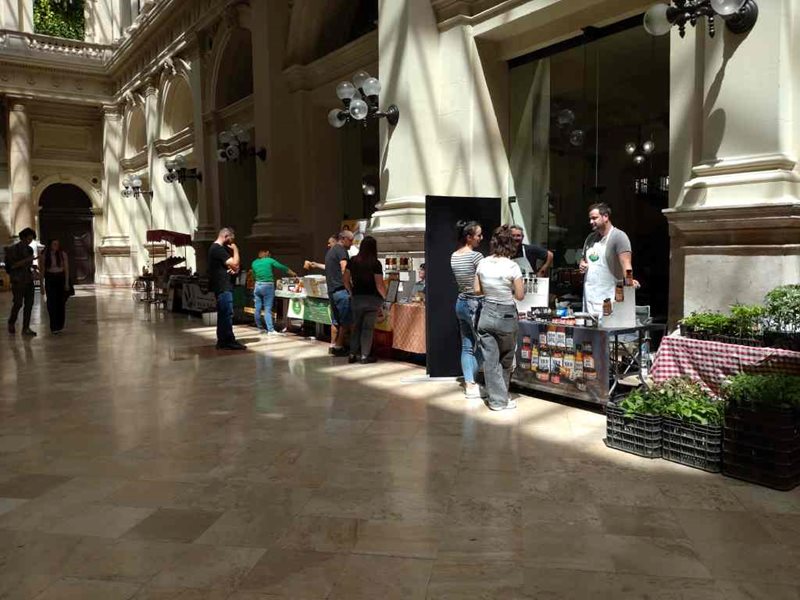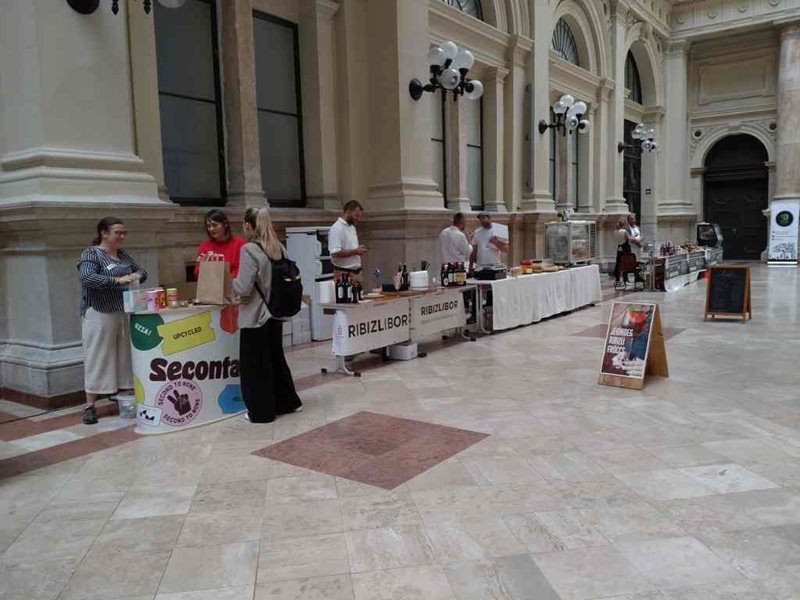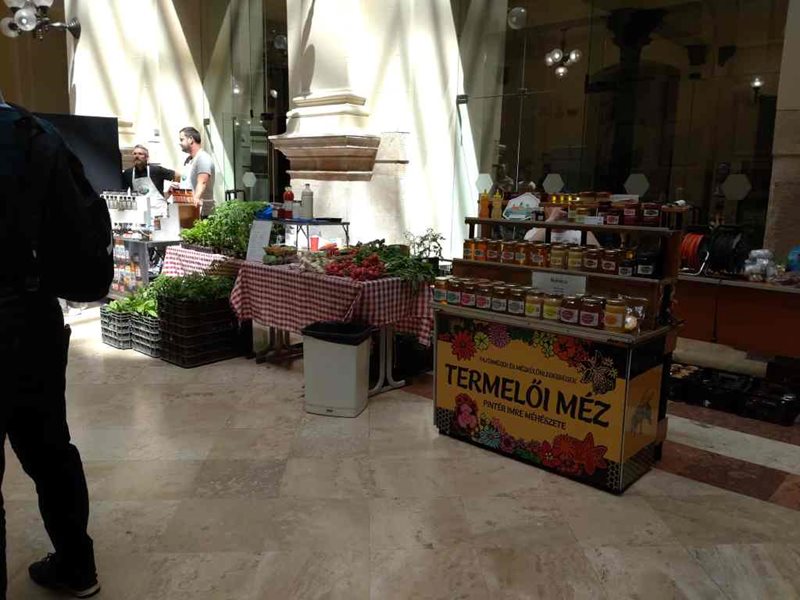“There is a charm to the farmers’ markets that more and more people are following”
_20240521111850_0.jpg)
The 4th Corvinus Produce Market and a related professional conference were successfully held in May. More producers and a wider range of products than ever before were on display. The conference attracted more than 150 registered participants and provided the opportunity for professional collaborations.
We talked to Lili Ágfalvai, a student of International Studies, about her impressions and experiences as a producer. The market was organised by Gréta Maró, PhD student at Corvinus, Áron Török, Head of the Department of Agricultural Economics and Zalán Márk Maró, Assistant Professor at the Department of Agricultural Economics. The interview is edited for length and clarity.
Where did your story as a farmer start, what was the first point in your life when the farmers’ market appeared?
It was back in the Covid days, when I was a high school student at home in Dunakeszi and I was bored. Then an opportunity came up: the market had an ordering system, which was a big thing during Covid, you didn’t even have to get out of your car, you just rolled out and they put your order in your car. That’s where I first went to help out.

Later on, I got so fond of the place that I didn’t stop helping out when I went to university. In the meantime, I met a beekeeper at the market and have been in a relationship with him ever since, for almost three years now. That is how I got involved in beekeeping.
He brings the profession from his family, now in the third generation. Until Covid, he was doing it while working for another company, so there wasn’t as much stock. Although he used to go to markets, he left his office job during the epidemic and became a full-time farmer.
How popular are farmers’ markets after the pandemic? Do you see any kind of trends in this?
I think there is an upward trend, but it can be traced back 5-10 years for sure. It depends on the town, for example, for us the market in Dunakeszi is one of the weaker ones, despite the fact that we are talking about a town of almost 50 000 residents, but there must be reasons for that. Dunakeszi is a big enough town, the public would be there, but somehow fewer people come out.
Our best market is in Ecser, where many people from the surrounding municipalities and from Budapest come out every other Saturday. There is a charm to the farmers’ market, and more and more people are following it.
How much business can you build on farmers’ markets?
I think you absolutely can. Besides being at markets, we also sell door-to-door, but we don’t have a webshop, for example. Besides, in Csömör, where we live, there are one or two shops where our honey can be found, and we also deliver to a small shop in Budapest. If we invest the necessary energy to make it work, then customers will take the products.
What do you see among your peers, how interested are students in the farmers’ market?
I think most people have heard of it. What I have noticed is that most people come to the market on a day when there are lectures or seminars. This means that fewer people come on days when there are no compulsory classes for students. But they usually know about it and are interested.

What was your experience at this year’s market in the Aula, what did you take home with you?
Once again, we had a very good market. It was a particular pleasure to organize an NAK conference in parallel with the current market, and thanks to this I was able to talk to fellow professionals and find people from different agricultural organizations with interesting and useful questions.
I noticed that the students loved the university market, and many of them visited the main hall and left with many delicious products.
What advice would you give to those who would visit a farmers’ market for the first time?
You have to decide whether you want to save money on your health, which means on the ingredients you eat. What you need to know is that farmers’ markets do not bring in producers off the street, each market has a manager who first gets the necessary paperwork. This means that if you buy food from a farmers’ market, you can’t be buying poor quality food. Of course, there are some markets where the background is not reliable, but these are not usually advertised as farmers’ markets.
So, I would say don’t look at the price first and foremost. Of course, we have to consider what is realistic for us or what is affordable for our wallets, but the last thing we should do is cut corners on the quality of the food.
It’s also important to remember that in a market like this, in most cases the producer is behind the table, so we can have more confidence that the product isn’t coming from, say, Egypt. By buying, we support short supply chains, which is good for the local economy and the environment in many ways, such as less transport.

What products do you usually sell at farmers’ markets?
We mainly sell varietal honeys, but we also have complementary products. You can also find dessert honeys, propolis and pollen, so that’s probably all we have for now.
The situation of pollinators often comes up in the sustainability discourse. To what extent do you experience this problem, do you have a strategy?
We usually come across the lack of pollinators in conversations with people we know when the subject of gardening comes up. Many people hardly see the same insects that the old people used to see, at least not in the same numbers. This is more likely to happen in a Budapest environment. In the countryside and in nature you hear less about it. When we go out into nature, we still find pollinator species. We also keep quite a nice population alive. We will not give up!
Written by: Máté Kovács
In May, we relaunched the Sustainability Theme of the Month project at Corvinus, focusing on community action. One such community action is the Farmers’ Market organized by our colleagues. Details about the project and other activities can be found here.